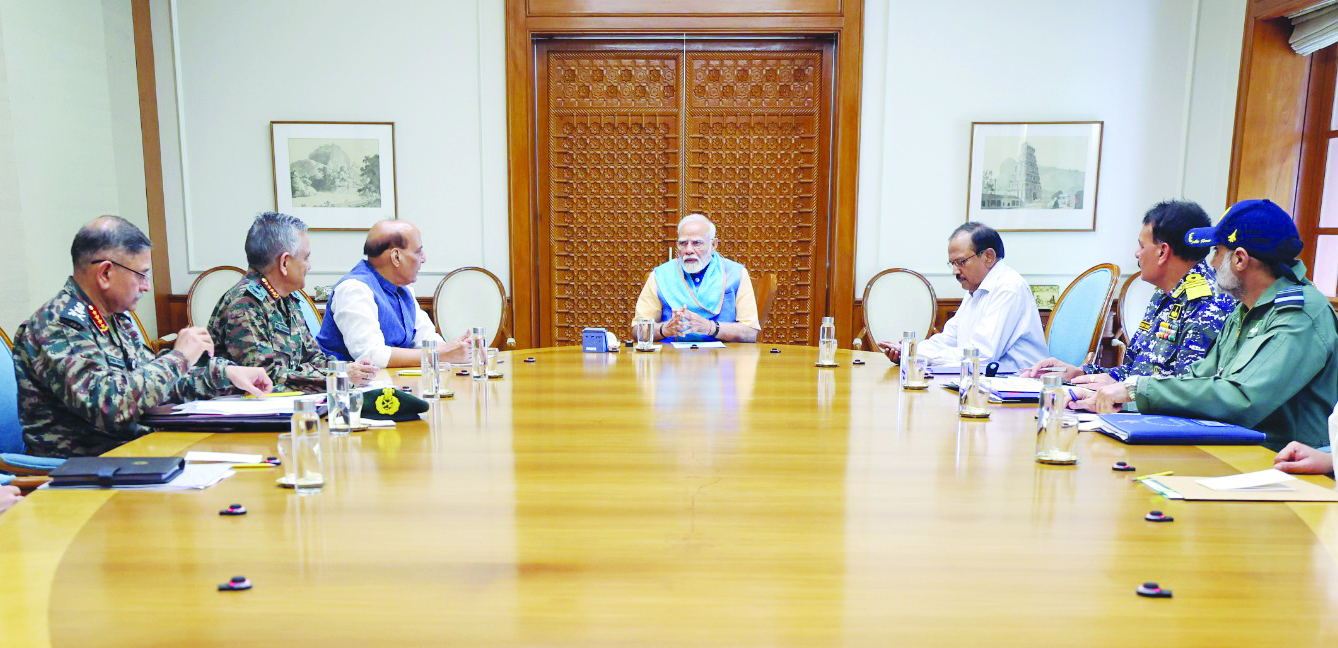The deadly terror attack in Baisaran Valley reshaped India’s strategy.
NEW DELHI: The fallout from the deadly terror attack in the picturesque Baisaran Valley near Pahalgam on April 22, 2025, has dramatically reshaped India’s strategic calculus toward Pakistan. Twenty-six innocent lives—including tourists from Maharashtra, Gujarat, Karnataka, a Nepali citizen, and a local Kashmiri—were brutally taken when terrorists affiliated with The Resistance Front (TRF), a proxy of the Pakistan-based Lashkare-Taiba, struck. Although TRF initially claimed responsibility and later retracted, India’s National Investigation Agency (NIA) conclusively traced the attackers to safe houses in Muzaffarabad and Karachi. This barbaric act led to India’s decisive response— Operation Sindoor—executed swiftly on May 7. Marking the most assertive Indian action since the 2019 Balakot airstrikes, the 25-minute precision strike by the Indian Army and Indian Air Force targeted nine terror camps in Pakistan and Pakistan-occupied Kashmir (PoK), neutralising over 70 terrorists. Among those eliminated was Mudassar Khadian Khas, a senior Lashkar operative linked to the 2008 Mumbai attacks. Significantly, his funeral included a guard of honour by the Pakistan Army, attended by senior military and police officials, highlighting Pakistan’s state-level complicity. Other prominent terrorists killed included Hafiz Muhammad Jameel and Mohammad Yusuf Azhar—both closely associated with Jaish-e-Mohammed chief Maulana Masood Azhar—alongside Lashkar operative Khalid (Abu Akasha) and JeM’s Mohammad Hassan Khan, key figures involved in coordinating terrorist attacks in Jammu and Kashmir. The Ministry of External Affairs (MEA) described Operation Sindoor as “focused, measured, and non-escalatory,” explicitly avoiding any military targets. Defence Minister Rajnath Singh praised the precision and effectiveness of the strikes as “unimaginable.” Despite New Delhi’s calibrated response, Islamabad escalated tensions dramatically. From May 8 to 9, Pakistani forces launched extensive drone and missile strikes on 26 locations across northern and western India. Civilian infrastructure, including medical centres and schools in Srinagar, Awantipora, and Udhampur, became deliberate targets. Indian air defence units, however, demonstrated exceptional preparedness, intercepting threats with systems including the advanced S-400 missile shield, L-70 guns, and Schilka anti-aircraft artillery. Throughout this escalation, Pakistan’s credibility suffered further damage due to its aggressive misinformation campaign, going as far as to falsely claim the destruction of an Indian S-400. Amid spiralling tensions and major Pakistani losses, back-channel military negotiations initiated by Pakistan’s Director General of Military Operations (DGMO) culminated in a ceasefire agreement effective from 5:00 pm on May 10. At the MEA press briefing, New Delhi announced a fundamental shift in its strategic doctrine. The Indian government has now unequivocally declared that any future terrorist attack emanating from Pakistani territory will be considered an “act of war,” necessitating an immediate, measured, and decisive military response. This doctrinal evolution represents a notable shift from past responses such as surgical strikes post-Uri (2016) and the Balakot airstrikes (2019), highlighting India’s readiness for immediate military accountability. Domestically, this new stance enjoys broad political consensus and public support, signalling India’s firm commitment to a “zero-tolerance” policy toward state-sponsored terrorism from Pakistan. India’s recent actions and bold declaration clearly convey that while peace remains the ideal, the nation’s security is non-negotiable. The past week vividly illustrated Pakistan’s continuing unreliability as a nation-state and neighbour, and put the spotlight on India’s zero-tolerance for provocations. The new doctrine sends an unmistakable message: future acts of terror will not merely be treated as security incidents—they will be unequivocally recognised as acts of war. Ashish Singh is an awardwinning senior journalist with over 18 years of experience in defence and strategic affairs

